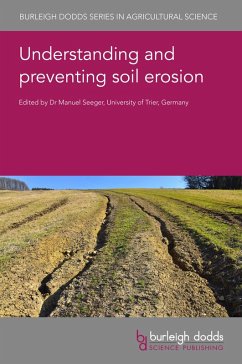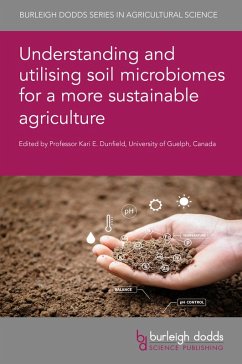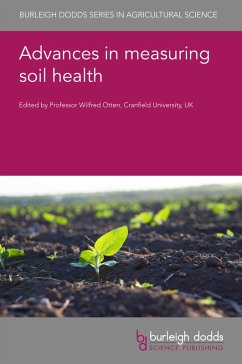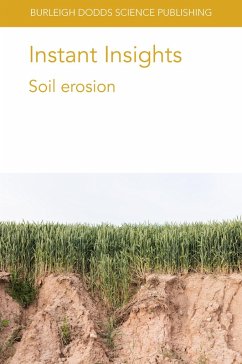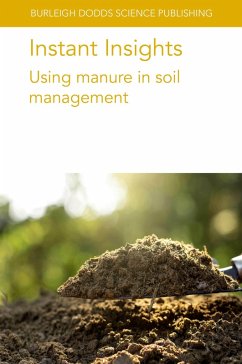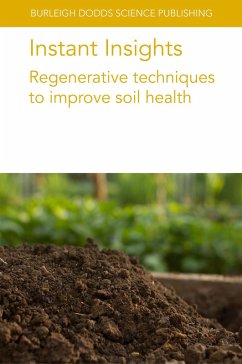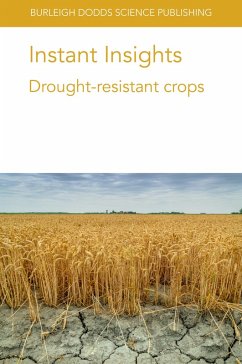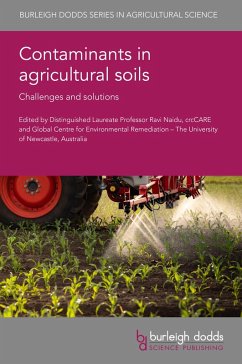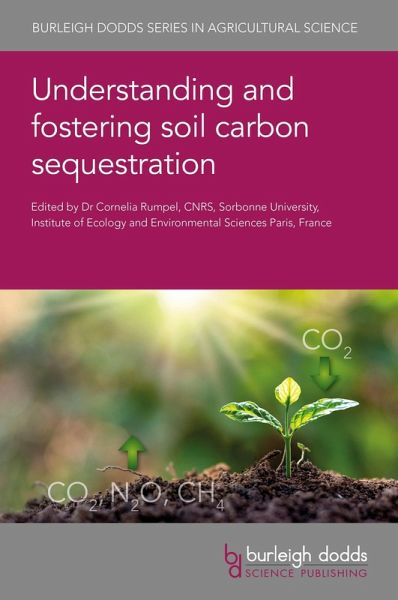
Understanding and fostering soil carbon sequestration (eBook, ePUB)

PAYBACK Punkte
81 °P sammeln!
"The beauty of book chapters stems from the fact that they are often written by experienced authors who make an effort to summarize their expertise in a given area in a way, which is accessible to students and-ideally-policy makers. The editor indeed took great care that all aspects of carbon sequestration are considered. In summary, we do not hesitate to call this book a true soil carbon sequestration bible. We highly recommend the book to students, researchers at any stage of their career as well as governmental and non-governmental organizations working on climate mitigation and related top...
"The beauty of book chapters stems from the fact that they are often written by experienced authors who make an effort to summarize their expertise in a given area in a way, which is accessible to students and-ideally-policy makers. The editor indeed took great care that all aspects of carbon sequestration are considered. In summary, we do not hesitate to call this book a true soil carbon sequestration bible. We highly recommend the book to students, researchers at any stage of their career as well as governmental and non-governmental organizations working on climate mitigation and related topics. We trust that the knowledge contained in this book will make a much-needed difference regarding global soil carbon status not only from a climate point of view, but also for the benefit of soil health in general." (Dr Else K. Bünemann, FiBL, Switzerland - Book Review Published in Nutrient Cycling in Agroecosystems)
Soils are known to be an enormous reservoir of carbon and represent an important and dynamic part of the global carbon cycle. However, this reservoir is under constant threat due to a combination of issues, including mismanagement, climate change and intensive agricultural production which has led to depletion of soil organic carbon.
Understanding and fostering soil carbon sequestration reviews the wealth of research on important aspects of soil carbon sequestration, including its potential in mitigating and adapting to climate change and improving global food security. The collection explores our understanding of carbon sequestration in soils, detailing the mechanisms and abiotic factors that can affect the process, as well as the socioeconomic, legal and policy issues that can arise as a result of this use.
In its extensive exploration of soil carbon cycling and capture, the book highlights how an informed understanding of carbon sequestration in a variety of soil types can contribute to achieving a more sustainable agriculture, as well as the methods which can be implemented by farmers to optimise the process of fostering carbon in soils.
Soils are known to be an enormous reservoir of carbon and represent an important and dynamic part of the global carbon cycle. However, this reservoir is under constant threat due to a combination of issues, including mismanagement, climate change and intensive agricultural production which has led to depletion of soil organic carbon.
Understanding and fostering soil carbon sequestration reviews the wealth of research on important aspects of soil carbon sequestration, including its potential in mitigating and adapting to climate change and improving global food security. The collection explores our understanding of carbon sequestration in soils, detailing the mechanisms and abiotic factors that can affect the process, as well as the socioeconomic, legal and policy issues that can arise as a result of this use.
In its extensive exploration of soil carbon cycling and capture, the book highlights how an informed understanding of carbon sequestration in a variety of soil types can contribute to achieving a more sustainable agriculture, as well as the methods which can be implemented by farmers to optimise the process of fostering carbon in soils.
Dieser Download kann aus rechtlichen Gründen nur mit Rechnungsadresse in A, D ausgeliefert werden.




